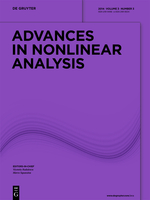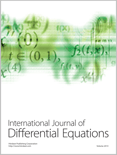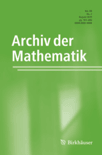
Electronic Journal of Qualitative Theory of Differential Equations
Scope & Guideline
Fostering Collaboration in Qualitative Mathematical Research
Introduction
Aims and Scopes
- Existence and Uniqueness of Solutions:
The journal frequently publishes works that explore the existence and uniqueness of solutions for various types of differential equations, including boundary value problems and systems with discontinuities. - Qualitative Analysis of Differential Equations:
A core focus is on the qualitative behavior of solutions, including oscillation criteria, stability analysis, bifurcation theory, and long-term behavior of solutions. - Nonlinear and Fractional Differential Equations:
The journal emphasizes research on nonlinear differential equations, including fractional and higher-order equations, highlighting their unique properties and solution techniques. - Applications to Real-World Problems:
Many papers apply theoretical findings to practical problems in fields such as biology, physics, and engineering, demonstrating the relevance of qualitative theory in modeling complex systems. - Innovative Methodologies:
The journal supports innovative approaches to solving and analyzing differential equations, including numerical methods, variational methods, and topological techniques.
Trending and Emerging
- Nonlocal and Fractional Differential Equations:
There is a growing interest in nonlocal and fractional differential equations, as evidenced by an increase in papers addressing their existence, uniqueness, and qualitative properties. - Stability and Bifurcation Analysis:
Research focused on stability analysis and bifurcation phenomena is on the rise, reflecting a deeper exploration of the dynamic behavior of solutions under varying conditions. - Complex Systems and Applications:
Emerging themes include the study of complex systems, such as predator-prey models and epidemiological models, which utilize qualitative theory to address real-world problems. - Numerical and Computational Methods:
An increase in the application of numerical methods for the analysis of differential equations is evident, indicating a trend towards computational approaches alongside theoretical studies. - Mixed and Hybrid Models:
Research exploring hybrid models that combine different types of differential equations, such as impulsive and delay equations, is gaining interest, showcasing the versatility of qualitative methods.
Declining or Waning
- Linear Differential Equations:
There has been a noticeable decrease in publications related to linear differential equations, suggesting a shift towards more complex, nonlinear, and fractional equations. - Elementary Boundary Value Problems:
Traditional boundary value problems are becoming less common, as researchers increasingly explore more complex and generalized boundary conditions. - Purely Theoretical Studies:
Papers focusing solely on theoretical aspects without practical applications are appearing less frequently, indicating a trend towards applied research that connects theory with real-world issues.
Similar Journals

Evolution Equations and Control Theory
Navigating the Intersection of Mathematics and Control.Evolution Equations and Control Theory is a prestigious academic journal published by the Amer Institute Mathematical Sciences (AIMS), focusing on the intersection of applied mathematics, control theory, and simulation models. With a commendable track record since its inception in 2012, the journal has quickly established itself as a leading resource for researchers and practitioners in the fields of applied mathematics and control systems, as evidenced by its Q1 ranking in multiple categories for 2023. The journal features rigorous peer-reviewed articles that explore significant theoretical advancements and practical applications in evolution equations and their control. Although it operates under a subscription model, the high impact of research published in this journal, including its Scopus rankings—placing it within the top percentiles in related disciplines—makes it an essential read for those advancing knowledge in this vital area of study. Based in the United States, the journal continues to foster global academic discourse, driving innovation and development in evolving mathematical frameworks.

Advances in Nonlinear Analysis
Championing Excellence in Nonlinear ResearchAdvances in Nonlinear Analysis is a highly regarded academic journal dedicated to the exploration and dissemination of research in the field of nonlinear analysis. Published by DE GRUYTER POLAND SP Z O O, this journal has established itself as a pivotal resource for scholars and practitioners, achieving an impressive Q1 ranking in the Mathematics - Analysis category, and placing in the top 97th percentile within its discipline as per the latest Scopus rankings. With an Open Access model since 2018, Advances in Nonlinear Analysis ensures that cutting-edge research is readily accessible to a global audience, promoting the advancement of knowledge without barriers. Covering a broad spectrum of topics within nonlinear analysis, this journal invites contributions that involve either theoretical or applied aspects, making it an essential platform for exchanging innovative ideas and results in this dynamic field. Researchers, professionals, and students alike will find this journal invaluable for staying abreast of the latest developments and methodologies in nonlinear analysis.

International Journal of Differential Equations
Empowering Innovation Through Open Access MathematicsThe International Journal of Differential Equations is a premier platform for scholars and practitioners in the field of mathematics, dedicated to advancing the study of differential equations and their extensive applications. Published by Hindawi Ltd, this open access journal, which has been available since 2010, aims to bridge the gap in research by providing a venue for significant findings, innovative methodologies, and impactful applications. Operating under rigorous peer-review standards, it holds a Q3 ranking in both Analysis and Applied Mathematics for 2023, demonstrating its growing influence within these domains. With a clear focus on fostering interdisciplinary research, the journal invites contributions that explore theoretical advancements as well as practical implementations of differential equations. By making high-quality research freely accessible, the International Journal of Differential Equations plays a crucial role in empowering academics and industry professionals alike, enhancing collaboration and knowledge-sharing in this vital area of mathematical science.

JOURNAL OF EVOLUTION EQUATIONS
Unveiling innovative solutions in evolution equations.Welcome to the JOURNAL OF EVOLUTION EQUATIONS, a leading academic journal published by SPRINGER BASEL AG, dedicated to the field of mathematics, with a specific emphasis on the analysis of evolution equations. Since its inception in 2001, this journal has become a central platform for researchers and professionals to disseminate innovative findings and theoretical advancements in the domain. With a commendable Q1 ranking in the category of Mathematics (miscellaneous) and a Scopus position of Rank #24/90, it reflects the esteemed quality and impact of the research it publishes. The journal aims to foster scholarly communication by covering all aspects of evolution equations, including their applications to various fields. While currently not available as an open-access publication, it offers access through various academic institutions, ensuring that high-quality research remains accessible to the scientific community. As it approaches its converged years of publication up to 2024, JOURNAL OF EVOLUTION EQUATIONS continues to be an invaluable resource for anyone seeking to expand their knowledge and understanding in this critical area of mathematical study.

Boundary Value Problems
Connecting Researchers through Cutting-Edge Mathematical InsightsBoundary Value Problems, published by SPRINGER, is a pioneering open-access journal dedicated to the dissemination of high-quality research in the fields of mathematics, specifically focusing on algebra, number theory, and analysis. With an ISSN of 1687-2770 and an impressive impact factor reflecting its robust contribution to the academic community, particularly as it has achieved a Q3 ranking in both Algebra and Number Theory and Analysis categories in 2023, the journal serves as a vital platform for researchers, professionals, and students alike. Since its inception in 2005, Boundary Value Problems has been committed to fostering innovative breakthroughs and sharing knowledge that drives new perspectives and methodologies within the mathematical sciences. By facilitating open access to its articles, the journal ensures wide visibility and accessibility of cutting-edge research, making it an essential resource for anyone interested in boundary value problems and their multifaceted applications across various disciplines.

COMMUNICATIONS ON PURE AND APPLIED ANALYSIS
Where Rigorous Research Meets Practical ApplicationCOMMUNICATIONS ON PURE AND APPLIED ANALYSIS, published by the American Institute of Mathematical Sciences (AIMS), is a pivotal journal that serves the fields of pure and applied mathematics. With an ISSN of 1534-0392 and an E-ISSN of 1553-5258, this journal showcases rigorous research findings that span a myriad of topics within mathematical analysis and its applications. Given its impressive Q2 ranking in both Analysis and Applied Mathematics categories, it is recognized for its significant contributions, ranking 92nd out of 193 in Analysis and 369th out of 635 in Applied Mathematics according to Scopus. The journal, running continuously from 2004 to 2024, invites submissions that push the boundaries of mathematical thought and practice. While it operates under a traditional access model, the journal's comprehensive scope and burgeoning impact factor underscore its importance for researchers, professionals, and students who seek to engage deeply with current mathematical advancements.

Differential Equations and Dynamical Systems
Fostering Interdisciplinary Insights in MathematicsDifferential Equations and Dynamical Systems is a prominent academic journal published by Springer India, dedicated to the fields of analysis and applied mathematics. With an ISSN of 0971-3514 and an E-ISSN of 0974-6870, this journal serves as a platform for scholars to disseminate innovative research on differential equations and their applications in various dynamical systems. Recognized within the Q3 category for both Analysis and Applied Mathematics, it ranks impressively in Scopus, highlighting its contribution to the advancement of mathematical sciences. The journal aims to foster interdisciplinary research and provide an inclusive forum for researchers, professionals, and students engaged in this vital area of study. Although not open access, it offers valuable insights and findings published from 2008 to 2024, reinforcing its importance as a resource for ongoing developments in mathematical analysis. As a reputable source in its field, it invites contributions that challenge existing paradigms and inspire further inquiry.

ARCHIV DER MATHEMATIK
Advancing Mathematical Frontiers Since 1948ARCHIV DER MATHEMATIK is a distinguished journal published by SPRINGER BASEL AG, renowned for its contributions to the field of mathematics. Established in 1948 and continuing its legacy through to 2024, the journal provides a platform for innovative research and scholarly articles that push the boundaries of mathematical theory and application. With an ISSN of 0003-889X and an E-ISSN of 1420-8938, it holds a reputable position within the academic community, reflected by its Q2 ranking in the 2023 Mathematics (Miscellaneous) category. Despite not being an open access publication, ARCHIV DER MATHEMATIK remains accessible to a global audience through various databases, ensuring the dissemination of high-quality research. The journal’s commitment to enhancing mathematical discourse makes it an essential resource for researchers, professionals, and students seeking to expand their understanding of this vital discipline.

Mediterranean Journal of Mathematics
Elevating Research Standards in the Heart of the MediterraneanThe Mediterranean Journal of Mathematics, published by SPRINGER BASEL AG, is a prominent platform dedicated to the advancement of mathematical research and education. Since its inception in 2004, this journal has been pivotal in disseminating high-quality research across various fields of mathematics, currently holding a notable Q2 ranking in the miscellaneous mathematics category as of 2023. With its ISSN 1660-5446 and E-ISSN 1660-5454, the journal enjoys a respected position in the academic community, evident by its Scopus rank of 129 out of 399 in General Mathematics, placing it in the 67th percentile. While primarily a subscription-based journal, it remains committed to providing a comprehensive resource for researchers, professionals, and students, fostering dialogue and exploration within the mathematical sciences. The Mediterranean Journal of Mathematics, based in Basel, Switzerland, continues to contribute significantly to the evolution of mathematical theory and practice, marking its relevance as we approach its 20th anniversary in 2024.

Journal of Mathematical Extension
Cultivating a Global Community of Mathematicians.Journal of Mathematical Extension, published by Islamic Azad University, Shiraz Branch, is a leading section in the field of mathematics, dedicated to the dissemination of innovative research and theories since its establishment. With an Open Access model adopted in 2006, the journal provides a platform for researchers and scholars worldwide to share their findings, ensuring that knowledge is accessible to all. The journal focuses on a wide array of topics within the mathematical sciences, promoting interdisciplinary studies that connect mathematics to real-world applications. As a repository of cutting-edge research, Journal of Mathematical Extension is essential for academics, practitioners, and students alike, contributing to the advancement of mathematical understanding and its practical uses in various domains. Located in Shiraz, Iran, this journal embodies the commitment to nurturing a global community of mathematicians and researchers striving for excellence in the field.